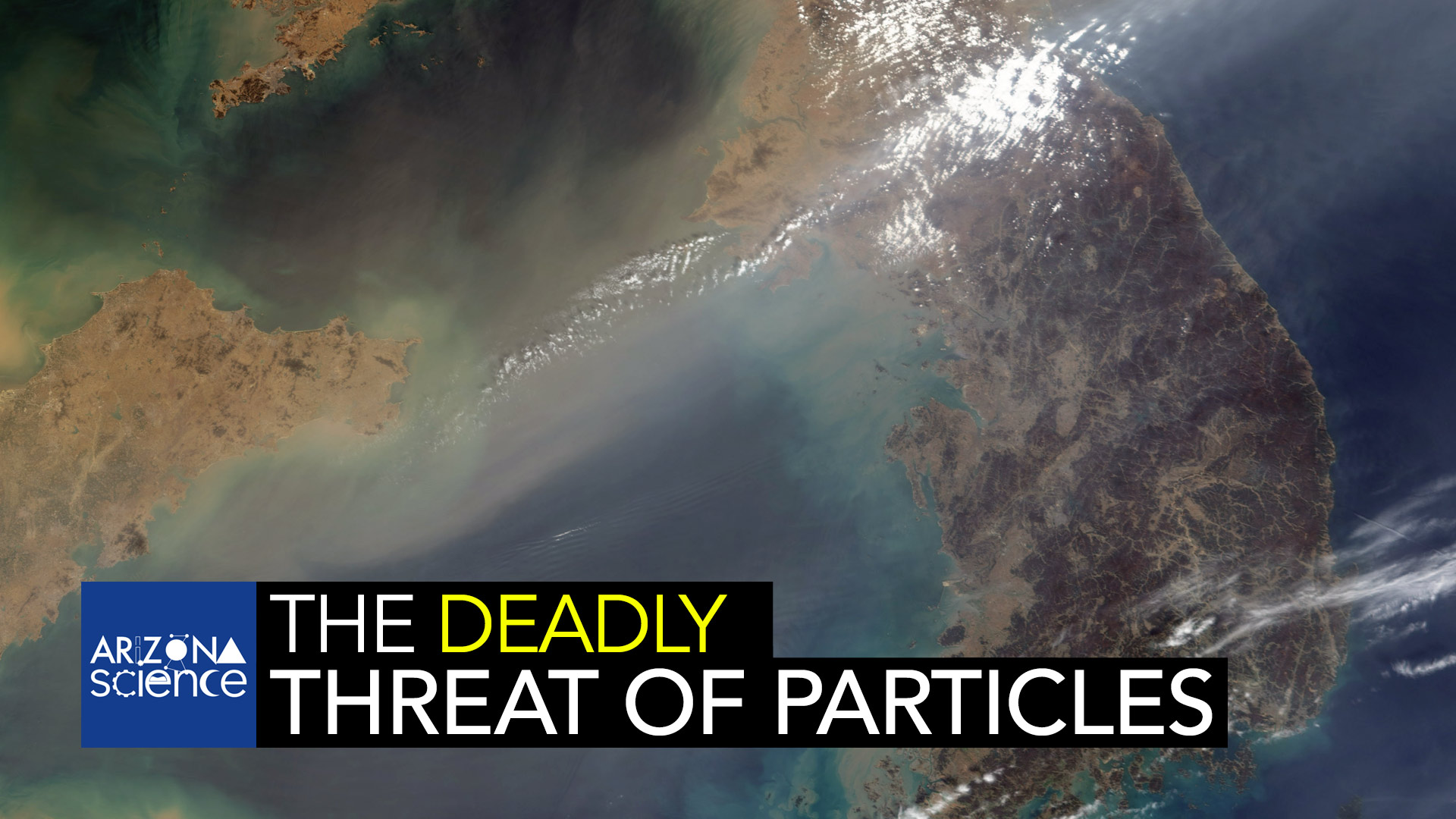 Particles such as those seen on the wind in this image are called aerosols. These small airborne particles can have a huge impact on the environment, threatening a range of things from human health to global climate.
Particles such as those seen on the wind in this image are called aerosols. These small airborne particles can have a huge impact on the environment, threatening a range of things from human health to global climate.
Although aerosol particles in the air are microscopic in size, their effects are all around us every moment of our lives. They affect public health, mostly owing to their deposition in the respiratory tract; in fact, of all environmental threats, particles are responsible for the most deaths globally. Particles also have huge effects on climate and rainfall. Because they last only a few days to weeks in the atmosphere and are constantly changing in size and composition, their effect on the planet's energy balance is among the largest uncertainties in estimates of climate change. Amin Sorooshian's research team is investigating the nature of airborne particles with field measurements, satellite remote-sensing data, and models. His groups is especially invested in trying to unravel the complexities associated with how particles affect the reflectivity of clouds and how and when the produce precipitation.
In this Episode
Armin Sorooshian, Ph.D., Associate Professor of Chemi cal and Environmental Engineering, and Hydrology and Atmospheric Sciences
Leslie Tolbert, Ph.D., Regents' Professor in Neuroscience


By submitting your comments, you hereby give AZPM the right to post your comments and potentially use them in any other form of media operated by this institution.